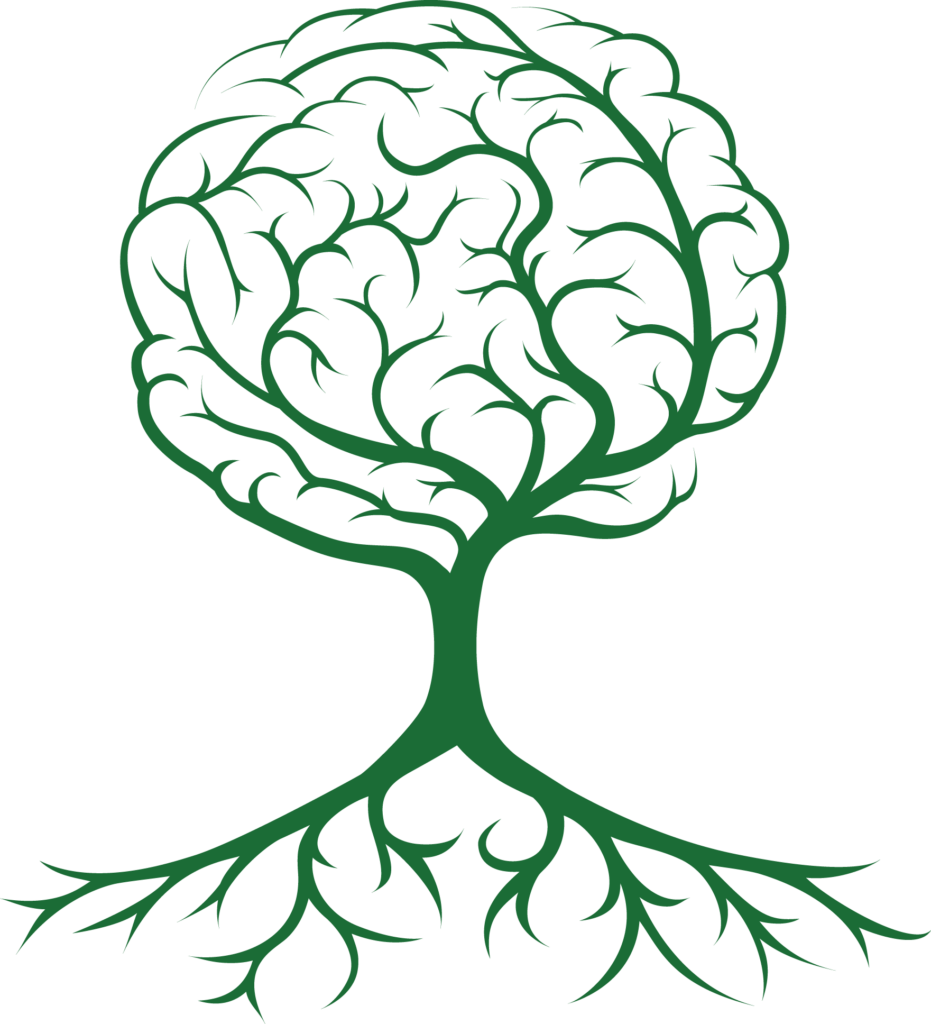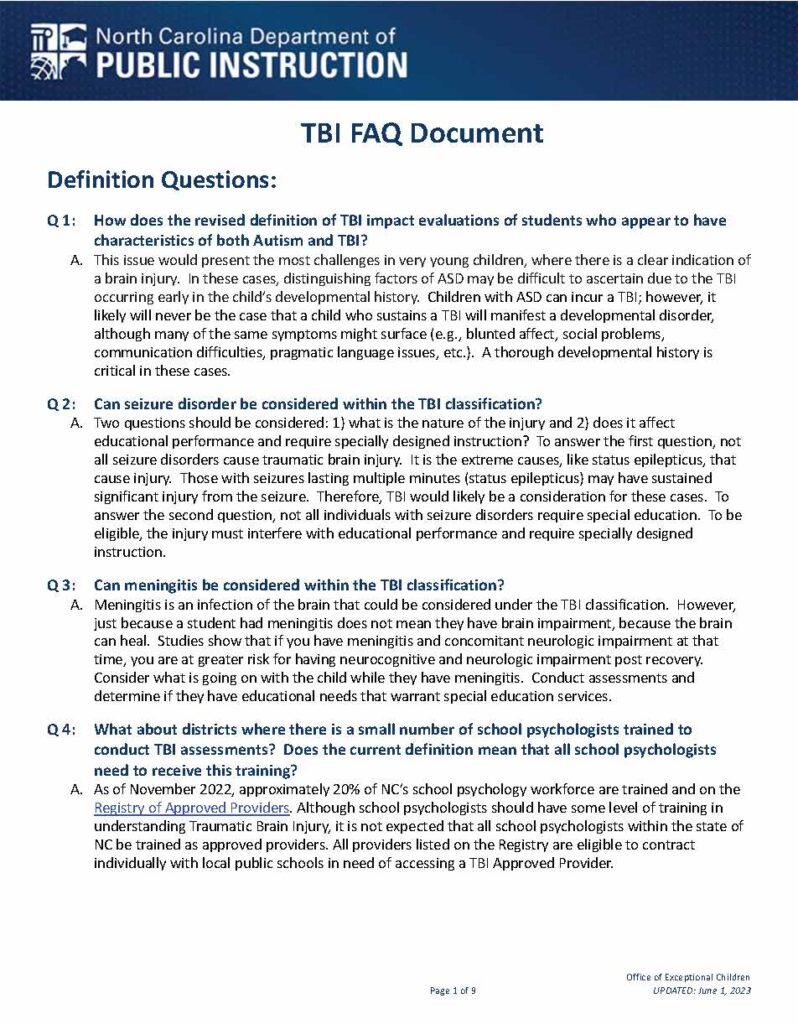
Providing information about Traumatic Brain Injury for educators, parents, and school psychologists on the NC DPI Registry of Approved Providers.
What is TBI?
NCDPI Definition:
In October 2013, to address the range of conditions that fall within this category, NC Policies Governing Services for Children with Disabilities published an expanded definition of Traumatic Brain Injury. This definition (found on page 5 of NC Policies) reads as follows:
Traumatic brain injury means an acquired injury to the brain caused by an external physical force or by an internal occurrence resulting in total or partial functional disability and/or psychosocial impairment that adversely affects a child’s educational performance. Causes may include but are not limited to, open or closed head injuries, cerebrovascular accidents (e.g., stroke, aneurysm), infections, kidney or heart failure, electric shock, anoxia, tumors, metabolic disorders, toxic substances, or medical or surgical treatments. The brain injury can occur in a single event or can result from a series of events (e.g., multiple concussions). Traumatic brain injury also can occur with or without a loss of consciousness at the time of injury. Traumatic brain injury may result in impairments in one or more areas, such as cognition; language; memory; attention; reasoning; abstract thinking; judgment; problem-solving; sensory, perceptual, and motor abilities; psychosocial behavior; physical functions; information processing; and speech. Traumatic brain injury does not apply to brain injuries that are congenital or degenerative, but can include brain injuries induced by birth trauma.
Policies Governing Services for Children with Disabilities, July 2014
IDEA evaluations of TBI in NC:
NC Policies states that, “all school psychologists providing assessment of children with Traumatic Brain Injury must meet the guidelines of the Exceptional Children Division for training in the assessment of Traumatic Brain Injury and be listed on the Exceptional Children Division’s registry of approved providers (hereafter referred to as the registry)” (p. 73).
Details of the NC TBI Training Process:
Part 1: TBI Online Curriculum
The Traumatic Brain Injury (TBI) Online Curriculum is a series of web-based training modules that summarize basic information about neuroanatomy, the history and presentation of TBI, assessment practices as they relate to TBI, and school-based interventions uniquely designed to meet the needs of individual students. Mild TBI (mTBI) is also discussed as it relates to concussion and return to learn protocols. Within each module, learners have the opportunity to test their understanding of the principles discussed; scores of 100% indicate mastery of the content. The information presented within the modules is beneficial not only for school psychologists seeking certification for North Carolina’s TBI Approved Provider registry*, but also for family members and clinical, education, and medical professionals who work with students living with TBI.
Part 2: School-based application group
The primary objective of this training group is to provide at least 30 hours of case-based learning to school psychologists related to the assessment, intervention, and associated consultation and management of students who have sustained a traumatic brain injury (TBI). This ensures a high quality of practice standards for school psychologists working with students with TBI in North Carolina public schools. While the didactic component largely focuses on the development of knowledge, the school based application component should focus largely on practitioner skill development in working with this population of students.
TBI Frequently Asked Questions
NC DPI School-Based Practice Committee
Purpose:
- To support adequate training and continued professional development for school-based psychologistsin the area of TBI (in accordance with requirements of NC Policies Governing Services for Children with Disabilities)
- To serve as a feedback loop and problem-solving team in order to appropriately address field-related issues surrounding the evaluation, identification, and support of students (PK-12) who have sustained a TBI and are receiving their education through a public education agency
- To provide best practice recommendations to NCDPI in the area of TBI, and also serve as a resource to NCDPI in their decision-making on school-based practice issues related to TBI
